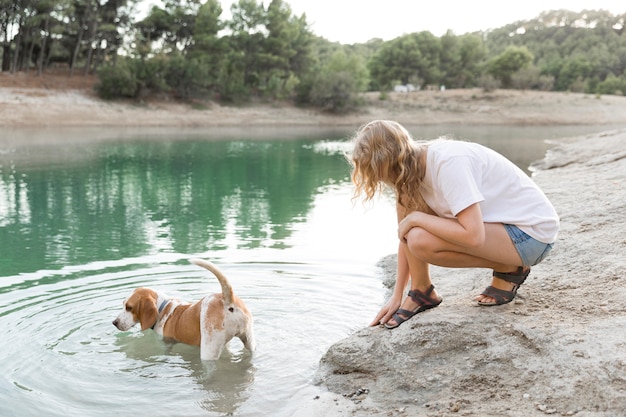Managing Outdoor Activities Safely with Pets in Hot South Carolina Summers

Managing Outdoor Activities Safely with Pets in Hot South Carolina Summers
Hot, humid summers are a hallmark of life in Fort Mill and the surrounding communities, and if you’re a pet owner, you’re likely familiar with the challenges these high temperatures bring. Whether your dog loves to chase a ball in the backyard or your cat enjoys supervised time on the porch, outdoor activities can be a wonderful way to enrich your pet’s life. However, the South Carolina summer sun can turn a fun outing into a health risk if you aren’t prepared. At Greenway Animal Hospital, located at 887 Gold Hill Rd Suite D and E, Fort Mill, SC 29708, we understand how much you care about your pet’s wellbeing. That’s why our team of veterinarians is committed to helping you enjoy the summer safely with your furry companions.
In this blog, we’ll walk you through essential summer pet care tips, from hydration and shade to recognizing the early signs of heat stress. You’ll learn how to manage outdoor pet safety in South Carolina’s unique climate, discover practical ways to keep your pet cool, and find out when to seek professional help. If you’re looking for a vet near me for wellness advice or comprehensive summer care, Greenway Animal Hospital welcomes you to schedule an appointment with our compassionate team. For ongoing preventive care, consider booking a wellness examination to ensure your pet is ready for the season ahead.
Recognizing Signs of Heat Stress and Dehydration in Pets
Summer brings opportunities for fun, but it also increases the risk of heat-related health issues in pets. Dogs and cats do not sweat like humans, relying mostly on panting and limited sweat glands in their paws to regulate body temperature. This makes them more susceptible to overheating, especially during periods of intense heat and humidity common in Fort Mill.
Key symptoms of heat stress include excessive panting, drooling, lethargy, and red or pale gums. You might notice your pet seeking out shade more than usual or becoming reluctant to move. In more severe cases, signs like vomiting, diarrhea, rapid heart rate, and staggering can indicate heatstroke—a true emergency that requires immediate attention. Dehydration often accompanies heat stress, so watch for dry or tacky gums, sunken eyes, and a loss of skin elasticity. Cats may become withdrawn and less interactive, while dogs might seem confused or weak.
It’s important to remember that some pets are more at risk than others. Brachycephalic breeds, such as Bulldogs and Persians, have shortened snouts that make breathing more difficult in hot conditions. Seniors, puppies, overweight pets, and those with chronic illnesses also face a higher risk. Recognizing these warning signs early is crucial for maintaining outdoor pet safety in South Carolina and keeping your furry friend out of harm’s way.
Why Do Pets Overheat? Understanding the Risks of Outdoor Activities in South Carolina
The climate in Fort Mill and the surrounding areas is characterized by high temperatures and significant humidity throughout much of the summer. These conditions can rapidly raise your pet’s body temperature, especially during midday or when shade is unavailable. Unlike humans, pets are unable to cool themselves efficiently, and even a short walk on a hot pavement can lead to burned paws or heat exhaustion.
Factors that contribute to overheating involve environmental conditions, an individual pet’s health status, and the types of activities you choose. For example, a brisk walk in the early morning may be safe, but a jog on a hot afternoon can quickly become dangerous. Asphalt and sand can retain heat, reaching temperatures high enough to injure sensitive paw pads. Additionally, pets left in parked cars, even for a few minutes, face life-threatening risks; temperatures inside vehicles can rise to deadly levels rapidly, even with the windows cracked.
The desire to make the most of beautiful weather is understandable, but it’s important to plan outdoor activities with your pet’s safety in mind. Taking a proactive approach is the best way to prevent heat-related emergencies and ensure your pet enjoys the season comfortably.
Professional Management and Veterinary Treatment for Heat-Related Illness
If you recognize any signs of heat stress or dehydration, immediate action is essential. The first step involves moving your pet to a cool, shaded area and offering small amounts of fresh water. Avoid giving large quantities of water all at once, as this can lead to vomiting or further distress. Cool, damp towels applied to the paws, belly, and armpits can help lower body temperature.
However, if your pet does not respond quickly or exhibits severe symptoms such as collapse, vomiting, or unresponsiveness, seek veterinary care without delay. At Greenway Animal Hospital, our veterinary professionals are experienced in treating heat-related illnesses. Treatment options may include intravenous fluids to correct dehydration, medications to stabilize body temperature, and monitoring for complications such as organ dysfunction. We may also perform diagnostic tests to assess the extent of any internal damage.
Our comprehensive veterinary services in Fort Mill include sick visits for pets that need urgent medical attention. If you’re worried about bringing your pet to our facility during extreme heat, our house calls and telemedicine options can provide support and guidance from the comfort of your home. While early intervention is key, ongoing monitoring and follow-up care may be required for pets recovering from severe heatstroke.
Preventing Heat Stress: Home Care and Safe Outdoor Pet Activities
Prevention is always preferable to treatment, and with a few simple steps, you can help your pet stay safe while enjoying the summer. The most important strategies revolve around timing, hydration, and environment. Aim to schedule walks and play sessions during the cooler parts of the day, such as early morning or late evening. Choose shaded areas for outdoor activities, and always check pavement temperatures before letting your pet walk on them; if it’s too hot for your hand, it’s too hot for your pet’s paws.
Hydration is crucial, so provide fresh, cool water at all times—both indoors and outdoors. Consider bringing a portable water bowl for outings, and encourage your pet to drink frequently. Setting up a kiddie pool or misting area in the backyard can offer additional cooling options for dogs that enjoy water play. For cats and less active pets, ensure they have access to shaded, well-ventilated areas and avoid forcing them outside during peak heat.
Grooming can also make a difference. Keeping your pet’s coat clean and appropriately trimmed helps with temperature regulation, but avoid shaving breeds with double coats, as this can interfere with their natural ability to stay cool. Flea and tick prevention remains important in the summer months, as parasites thrive in warm, humid weather.
If your pet is due for a checkup or you have concerns about their ability to handle the heat, a wellness examination with our veterinary team in Fort Mill is a great way to discuss personalized summer pet care tips. Our veterinarians can recommend specific strategies based on your pet’s age, breed, and health status, ensuring outdoor pet safety in South Carolina is always a priority.
When to Seek Veterinary Care for Heat-Related Issues
Knowing when to seek professional help can make all the difference in protecting your pet’s health during the summer months. Immediate veterinary attention is necessary if your pet shows signs of severe heat stress, including collapse, seizures, uncontrollable vomiting, or difficulty breathing. Even if symptoms appear mild, it’s better to err on the side of caution—heat-related illnesses can progress rapidly, and early intervention reduces the risk of complications.
For less urgent questions or mild symptoms, our telemedicine services allow you to consult with our veterinarians remotely. If you’re unable to travel or if your pet is especially anxious in new environments, our house calls provide a convenient alternative for veterinary services in Fort Mill and surrounding communities. Always remember, never hesitate to contact a vet near me if you’re unsure about your pet’s condition—your vigilance can prevent a minor issue from becoming a serious emergency.
Our veterinary team also encourages regular wellness exams and preventive care, especially during the warmer months. By staying proactive, you can help your pet thrive and enjoy all the benefits of summer without unnecessary risk.
Keeping Summer Fun and Safe: Your Partner for Outdoor Pet Safety in South Carolina
As summer approaches, it’s natural to want to share outdoor adventures with your pet. By understanding the signs of heat stress, taking preventive measures, and knowing when to seek veterinary support, you can ensure every sunny day is a safe and happy one for your furry family member. At Greenway Animal Hospital, our team of veterinarians is dedicated to providing the best summer pet care tips, tailored advice, and comprehensive services for every stage of your pet’s life.
If you’re looking for a vet near me who understands the unique needs of pets in Fort Mill and surrounding communities, we invite you to schedule an appointment for a wellness examination or reach out for guidance about outdoor pet safety in South Carolina. Our goal is to support you with resources, education, and personalized veterinary care—so you and your pet can make the most of every season together.
To book your visit, call us at (803) 239-4477 or stop by our convenient location at 887 Gold Hill Rd Suite D and E, Fort Mill, SC 29708. For more information on our services, including preventive care and summer safety, visit our website or connect with our friendly veterinary professionals today.
This article is for informational purposes only and does not replace professional veterinary advice. Always consult your veterinarian if you have concerns about your pet’s health or specific symptoms. For more information on pet heat safety, you can also visit resources such as the American Veterinary Medical Association and ASPCA.


















